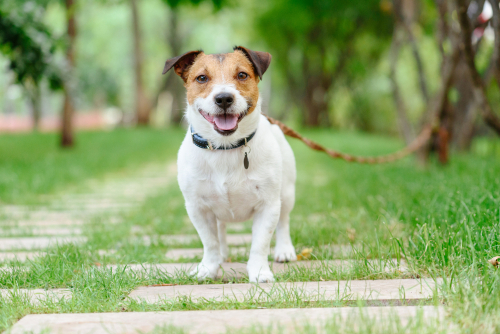Like all young mammals, puppies are voracious learners. Like sponges, they soak up every ounce of positive training. 14 weeks is the prime age to begin puppy training, but what happens if you’re trying to train an older dog? When you’re considering puppy trainers vs. dog trainers in Austin, can one K9 trainer work with all ages and stages, or should you find a trainer that specializes in working with older dogs?
What Makes Puppy Training Unique?
When you first bring your new puppy home, you will already be engaged with dog training around the clock, whether you realize it or not. Puppies learn from the moment they are born, and while they have short attention spans, they can begin to follow simple commands like “stay” and “sit” as early as 7 weeks.
However, puppy training should be relaxed and upbeat; never show frustration or speak to your puppy in an angry or gruff tone. If your puppy finds that training is scary and confusing, you’ll have a more difficult time working with him. Like people, puppies learn best when they are relaxed, happy, and positively engaged.
When your puppy’s attention span wanders (likely after only a few minutes), take a break for some play, exercise, and perhaps a nap before returning to another short burst of training.
While formal dog training classes have traditionally been pushed back until a puppy is around 6 months of age, we strongly encourage puppy parents to consider the downsides of delaying training. Remember, your puppy has been learning since birth.
By neglecting proper training during the juvenile age, your dog will have formed behavior patterns and made fear associations well before 6 months of age. This likely means you’ll be working through plenty of behavior modification and have to retrain anything that you initially taught incorrectly.
Additionally, your puppy’s prime age for socialization with other puppies is 3 months. By skipping puppy “kindergarten,” both you and your puppy will have to work harder later on.
While we all have the best of intentions for our dogs, the differences in the K9 way of thinking and learning means that most people aren’t instinctively excellent puppy trainers. By working with a certified trainer, you’ll be able to learn the skills you’ll need to continue working with your dog into his adult years.
How Is Training an Adult Dog Different from Puppy Training?
Once your dog has mastered the recommended basic commands throughout the first year of life, you’ll begin to strengthen the behaviors the two of you have learned. By continuing to work with a certified trainer, your dog will learn to obey in nearly all environments.
In adult training courses, you will work on response time, consistent obedience despite distractions, and ability to follow complicated commands.
The good news is, the methods employed to train puppies still work with adult dogs. Positive training is appropriate at all ages and stages, so a trainer who can work with a puppy will have every skill needed to continue working with your dog into his adult life.
K9 training classes will strengthen the bond between you and your dog, and ensure that your dog has the manners he needs to be welcome anywhere. A well-behaved dog will have a happier, more complete life than the dog who must spend his days home alone because his manners prevent him from joining his humans on their outings.
Beginning training at a young age will establish an invaluable foundation for continuing more complicated training later on, and will guarantee that your dog understands how to learn by the time he is old enough to require constraint by proper commands.
Whether you want to begin puppy training with a bumbling 8-week-old or need to begin training with an older rescue dog, All Dogs Unleashed only uses methods that will improve your dog’s quality of life.
If you have any questions regarding puppy or dog training, want to view a class in session, or would like to schedule your K9 companion for a class, please contact us today.



